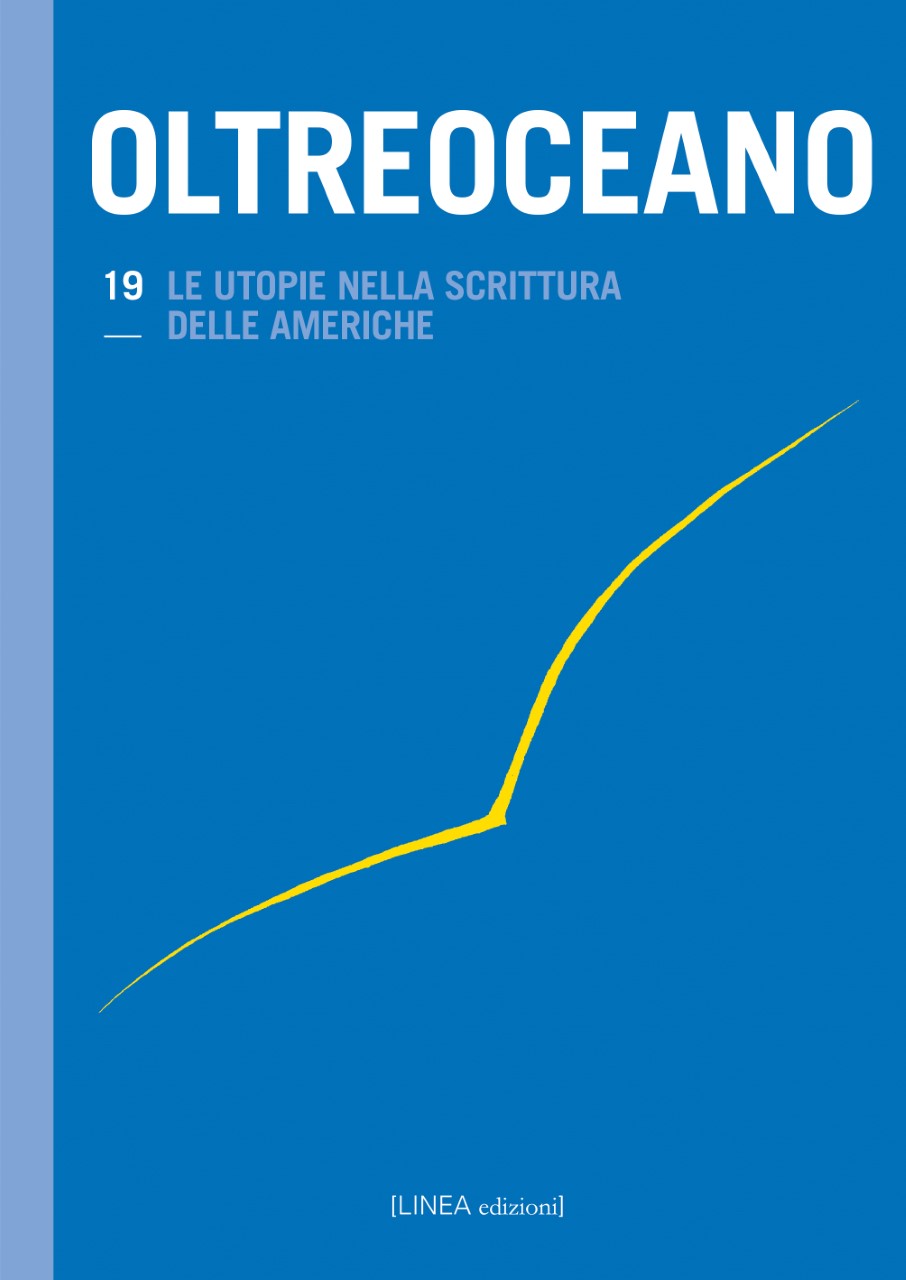Le Cercle et la Terre dans l’imaginaire des Amérindiens du Québec: topos ou utopie écologique?
DOI:
https://doi.org/10.53154/Oltreoceano32Keywords:
autochtones, écologie, écocritique, utopieAbstract
En s’appuyant sur l’approche écocritique pour l’analyse de quelques œuvres d’auteur(e)s amérindien(ne)s du Québec, cette étude vise à resituer en contexte des valeurs fondamentales de l’imaginaire et de la pensée autochtones, frôlant l’utopie si on les appréhende du point de vue eurocentrique, afin de leur restituer le statut de topoï, au sens littéraire autant que géographique, et les soustraire au domaine de l’utopie, donc de la négation et du non-lieu.
The Circle and the Earth in the imagery of Amerindians of Quebec: an ecological topos or utopia?
Following the eco-critical approach for the analysis of some works by Amerindian writers of Quebec, this study aims to contextualize fundamental principles of the Indigenous imaginary and thought – that border on utopia if we apprehend them from the Eurocentric point of view –, in order to recognize their value as topoi, in both the literary and geographical sense, and remove them from the sphere of utopia, and therefore of negation and nowhere.
Il Cerchio e la Terra nell’immaginario degli Amerindi del Québec: topos o utopia ecologica?
Seguendo l’approccio ecocritico per l’analisi di alcune opere di scrittori amerindi del Québec, questo studio si propone di contestualizzare principi fondamentali dell’immaginario e del pensiero autoctono, che rasentano l’utopia se considerati dal punto di vista eurocentrico, al fine di riconoscere il loro valore di topoi, nel senso sia letterario che geografico, e sottrarli all’ambito dell’utopia, e dunque della negazione e del non-luogo.
Downloads
References
Assiniwi, B. (1996): La Saga des Béothuks. Montréal / Arles: Leméac /Actes Sud.
Augé, M. (1992): Non-lieux. Introduction à une anthropologie de la surmodernité. Paris: Seuil.
Bacon, J. (2009): Bâtons à message / Tshissinuatshitakana. Montréal: Mémoire d’encrier.
Dendien, J. (Conception et réalisation informatiques), (2002): entrée Utopie. In Trésor de la Langue Française informatisé (TLFi). Tiré de https://www.cnrtl.fr/definition/utopie
Fontaine, N. (2011): Kuessipan. À toi. Montréal: Mémoire d’encrier.
Gatti, M. (2000): Être auteur autochtone au Québec aujourd’hui. In R. Viau (Éd.), La création littéraire dans le contexte de l’exiguïté (pp. 183-194). Saint-Nicolas (Québec): Publications MNH.
Gatti, M. (2006): Être écrivain amérindien au Québec. Indianité et création littéraire. Montréal: Hurtubise HMH.
Gatti, M. (2010): La Saga de Bernard Assiniwi, ou comment faire revivre les Béothuks. International Journal of Canadian Studies / Revue internationale d’études canadiennes, 41, pp. 279-296.
Kanapé Fontaine, N. (2014): Manifeste Assi. Montréal: Mémoire d’encrier.
Mestokosho, R. (s. d.): Eshi Uapataman Nukum. Come sento la vita, nonna. C. Gasparini & N. Clerici (Éds). Rome: Délégation du Québec.
Nepveu, P. (1999): L’écologie du réel. Mort et naissance de la littérature québécoise contemporaine. Montréal: Boréal.
Payment, C. (2010): Perles de sagesse amérindienne. Montréal / Paris: Mediaspaul.
Sioui, G. E. (1999): Pour une histoire amérindienne de l’Amérique. Québec / Paris: Les Presses de l’Université Laval / L’Harmattan.
St-Amand, I. (2010): Discours critiques pour l’étude de la littérature autochtone dans l’espace francophone du Québec. Studies in Canadian Literature / Études en littérature canadienne, 35, 2, pp. 30-52.
Trigger, B. G. (1999): Préface. In G. E. Sioui, Pour une histoire amérindienne de l’Amérique (pp. XI-XVIII). Québec / Paris: Les Presses de l’Université Laval / L’Harmattan.
Downloads
Published
How to Cite
Issue
Section
License

This work is licensed under a Creative Commons Attribution-NonCommercial-ShareAlike 4.0 International License.
The authors undertake to comply with the following conditions, which are considered accepted at the time of submission of their contributions.
The sending of a text implies that it is unpublished and not submitted to be published elsewhere.
1. If accepted, the author shall confer on the publisher the right to publish and distribute it both in paper form and in the online electronic edition. The published articles will be downloadable and made available in open access.
2. Provided that it correctly indicates that the first publication took place in the journal Oltreoceano. Rivista sulle migrazioni the author has the right to: a) reproduce the article in separate extracts or collected in a volume; b) publish the article on their personal website or teaching site provided that these sites are of a non-commercial nature; c) deposit the article in online archives of a non-commercial nature, linked to the institution they belong to or as part of projects for the non-commercial dissemination and open access of scientific works.
The use of contributions by third parties, for commercial or otherwise unauthorized purposes, is not allowed. The publisher declines all responsibility for the unauthorized use of the material published in the journal.












